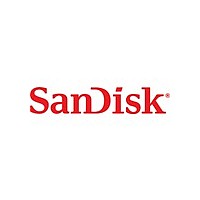SDMJ-128 SanDisk, SDMJ-128 Datasheet - Page 73

SDMJ-128
Manufacturer Part Number
SDMJ-128
Description
Manufacturer
SanDisk
Type
MultiMedia Cardr
Datasheet
1.SDMJ-128.pdf
(91 pages)
Specifications of SDMJ-128
Density
128MByte
Operating Supply Voltage (typ)
3.3V
Operating Temperature (min)
-25C
Operating Temperature (max)
85C
Package Type
MMC
Mounting
Socket
Pin Count
7
Operating Temperature Classification
Commercial
Operating Supply Voltage (min)
2.7V
Operating Supply Voltage (max)
3.6V
Programmable
Yes
Lead Free Status / Rohs Status
Compliant
Revision 1.3
© 2005 SanDisk Corporation
5.13.1
5.13.2
5.12
5.13
Clock Control
Error Conditions
CRC and Illegal Commands
Read, Write and Erase Timeout Conditions
in the card response indicates, by being set to 0, that the card has completed its
initialization process and is ready for the next command.
The SPI Bus clock signal can be used by the SPI host to set the cards to energy-saving
mode or to control the data flow to avoid under-run or over-run conditions on the bus. The
host is allowed to change the clock frequency or shut it down.
There are a few restrictions the SPI host must follow:
After the last SPI bus transaction, the host is required to provide eight clock cycles for the
card to complete the operation before shutting down the clock. The state of the CS signal is
irrelevant throughout this eight-clock period. The signal can be asserted or de-asserted.
Various SPI bus transactions are listed below.
The following sections provide valuable information on error conditions.
The CRC bits provide an optional protection of all commands. If the addressed
MultiMediaCard/RS-MultiMediaCard CRC check fails, the COM_CRC_ERROR bit will
be set in the card's response. Similarly, if an illegal command has been received, the
ILLEGAL_COMMAND bit will be set in the card’s response.
Types of illegal commands include:
The time period after which a timeout condition for read/write/erase operations occur is
card independent and ten times longer than the typical access/program times for these
operations given in Table 5-1. A card will complete the command within the stated time
•
•
•
•
•
•
The bus frequency can be changed at any time under the restrictions of maximum data
transfer frequency, defined by the MultiMediaCard/RS-MultiMediaCard.
The clock must be running for the card to output data or response tokens.
The host is allowed to shut down the clock of a busy card. The MultiMediaCard/RS-
MultiMediaCard will complete the programming operation regardless of the host
clock. However, the host must provide a clock edge for the card to turn off its busy
signal. Without a clock edge, the card (unless previously disconnected by de-asserting
the CS signal) will permanently force the dataOut line down.
Command belongs to a class not supported by the MultiMediaCard/RS-
MultiMediaCard
Command not allowed in SPI Mode
Command is not defined
−
−
−
−
−
Command/response sequence; occurs eight clocks after the card response end
bit. The CS signal can be asserted or de-asserted during the eight clocks.
Read data transaction; occurs eight clocks after the end bit of the last data block.
Write data transaction; occurs eight clocks after the CRC status token.
For example, Interrupt and I/O commands
For example, CMD6
5-8
MultiMediaCard/RS-MultiMediaCard Product Manual
Chapter 5 –SPI Mode
04/21/05











